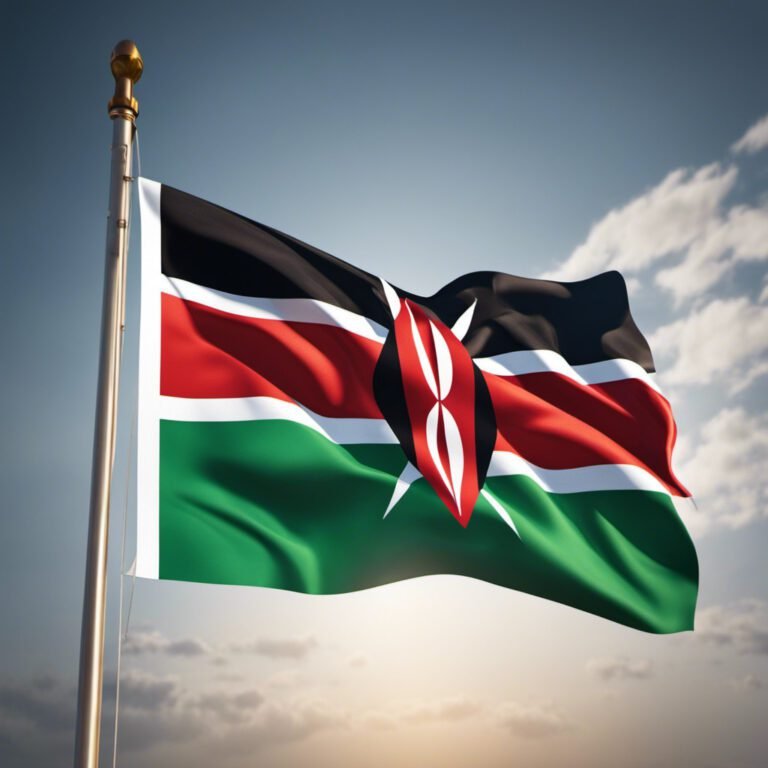Is Kenya A Safe Country To Visit?
If you’re thinking of traveling to Kenya, you might be wondering: is it a safe country to visit? Well, in this article, we’ll explore the safety situation in Kenya and give you some insights that will help you make an informed decision. From stunning wildlife reserves to vibrant cultural experiences, Kenya has a lot to offer to adventurous travelers. But it’s important to address any concerns you may have about safety before embarking on your journey. So, let’s take a closer look at the current safety conditions in Kenya and uncover what you need to know.

This image is property of pixabay.com.
Overview of Kenya
Geographical location
Kenya is located in East Africa, bordered by the Indian Ocean to the southeast. It shares its borders with Ethiopia to the north, Somalia to the northeast, Tanzania to the south, Uganda to the west, and South Sudan to the northwest. The country is known for its diverse geography, including the Great Rift Valley, Mount Kenya, and the famous Maasai Mara National Reserve.
Population
Kenya is the largest country in East Africa by population, with over 53 million people. The population is diverse, consisting of various ethnic groups such as the Kikuyu, Luo, Luhya, and Maasai. Nairobi, the capital city, is a bustling metropolis and the economic and political center of the country.
Political structure
Kenya is a democratic republic with a multi-party political system. The President serves as the head of state and government, while the Parliament consists of two chambers: the National Assembly and the Senate. The country has made significant progress in recent years in terms of political stability and governance, although some challenges still remain.
Economic status
Kenya has emerged as one of the leading economies in Sub-Saharan Africa, with a thriving private sector and a diversified economy. The country’s main industries include agriculture, manufacturing, tourism, and services. Kenya is a popular destination for both leisure and business travelers, contributing significantly to its economic growth.
Safety Perception of Kenya
Media portrayal
The media often highlights negative incidents and sensationalizes crime and security issues in Kenya. While it is important to stay informed, it is also essential to understand that media representation does not always reflect the overall safety situation in the country. It is advisable to rely on multiple sources of information and seek local insights for a more accurate perception.
Travel advisories
Several countries issue travel advisories for Kenya, cautioning their citizens about potential risks and security concerns. These advisories are usually based on historical incidents and ongoing security assessments. However, it is crucial to note that travel advisories are not blanket statements and vary from region to region within Kenya. Travelers should check the latest information from their country’s foreign ministry or embassy before making travel plans.
Expat experiences
Many expatriates have chosen to live and work in Kenya, indicating that the country offers a reasonably safe environment for both locals and foreigners. With the right precautions, expats and travelers can have positive experiences in Kenya. It is important to connect with expat communities and seek advice from those who have firsthand experience living in the country.

This image is property of pixabay.com.
Crime and Security Situation
Street crime
Like in any major city or tourist destination, street crime does exist in Kenya, particularly in urban areas. Pickpocketing, bag snatching, and petty theft can occur, particularly in crowded areas or public transportation. It is important to remain vigilant, keep personal belongings secure, and avoid displaying wealth or valuables openly.
Tourist-targeted crimes
Tourist-targeted crimes, such as scams and tourist traps, are not uncommon in popular tourist areas of Kenya. Visitors should be cautious when dealing with strangers offering unsolicited assistance or services. It is advisable to book tours and activities through reputable companies and use licensed tour guides. Additionally, keep an eye out for counterfeit goods and be cautious when using ATMs to avoid skimming scams.
Transportation safety
In terms of transportation, Kenya offers various options, including buses, taxis, and ride-hailing services. While road accidents can occur due to reckless driving or poor road conditions, travel by reputable companies and licensed drivers can mitigate these risks. Avoid using unmarked or unlicensed taxis and be cautious when using public transportation at night.
Health risks
Health risks should also be considered when traveling to Kenya. It is important to consult with a healthcare professional before visiting and ensure that all necessary vaccinations, such as yellow fever and malaria, are up to date. Basic hygiene practices, such as drinking bottled water, practicing food safety, and using insect repellent, can help prevent illness.
Terrorism Threats
History of terrorism in Kenya
Kenya has unfortunately experienced several terrorist attacks in the past, most notably the 1998 U.S. Embassy bombing in Nairobi and the 2013 Westgate Mall attack in Nairobi. These incidents targeted crowded public spaces and resulted in a significant loss of life and injuries.
Current terrorism situation
Kenyan authorities continue to take strong measures to counter terrorism and improve security. Vigilance and security measures have been increased, particularly in major cities and tourist areas. The government has also collaborated with international partners to strengthen its counterterrorism capabilities.
High-risk areas
Certain regions in Kenya, particularly near the borders with Somalia and South Sudan, have been identified as high-risk areas for terrorism. These areas include parts of Garissa, Mandera, Lamu, and Wajir counties. Travelers should exercise caution and avoid non-essential travel to these regions. It is advisable to refer to travel advisories and consult with local authorities for the latest security information.

This image is property of pixabay.com.
Natural Disasters and Environmental Hazards
Droughts and famine
Kenya, like many countries in East Africa, is vulnerable to droughts and occasional famines. These natural disasters can have severe consequences, particularly for rural communities that depend on agriculture and livestock. It is essential for travelers to be aware of any ongoing drought situations and their potential impact on local communities.
Floods
During the rainy seasons, certain areas of Kenya may experience floods and mudslides, particularly in low-lying areas and near rivers. Travelers should be cautious and stay updated on weather forecasts, as heavy rains can lead to road closures, infrastructure damage, and disruptions to travel plans.
Wildlife encounters
Kenya is renowned for its diverse wildlife, including the “Big Five” – lions, elephants, buffalos, rhinoceros, and leopards. While wildlife encounters can be thrilling, it is important to remember that these animals are wild and can be dangerous. Visitors should always observe wildlife from a safe distance and follow the guidance of experienced guides.
Tourist Safety Measures
Hotels and accommodations
When choosing accommodations in Kenya, opt for reputable hotels and resorts with good security measures. Many hotels offer safes in rooms for the secure storage of valuables. It is also advisable to familiarize yourself with emergency procedures and evacuation plans provided by the hotel management.
Transportation options
To ensure safety during travel within Kenya, it is recommended to use reputable transportation options such as well-known taxi services or licensed tour operators. Research and book transportation services in advance, particularly for airport transfers and long-distance journeys.
Guided tours and organized activities
Booking guided tours and organized activities through reputable companies can enhance safety during your visit to Kenya. Experienced tour guides provide valuable insights, ensure adherence to safety protocols, and navigate unfamiliar environments effectively. It is essential to choose tour operators with a good reputation and positive customer reviews.
Health precautions
Prior to traveling to Kenya, it is crucial to consult with a healthcare professional or travel medicine clinic for up-to-date information on necessary vaccinations and health precautions. Carry a basic first aid kit, use insect repellent, practice good hygiene, and seek medical attention if needed.
Travel Insurance and Assistance
Travel insurance policies
Obtaining travel insurance with comprehensive coverage is strongly recommended before visiting Kenya. Travel insurance should include medical coverage, emergency evacuation, trip cancellation/interruption, and baggage loss/theft. Read the policy carefully, understand the coverage limits and exclusions, and ensure it meets your specific needs.
Emergency assistance services
Familiarize yourself with the emergency assistance services provided by your travel insurance company. These services often include 24/7 helplines staffed by trained specialists who can provide guidance and assistance in case of emergencies, such as medical emergencies, lost passports, or travel disruptions.
Safe Places to Visit in Kenya
Nairobi
Nairobi, the capital city of Kenya, offers a mix of modern amenities and cultural attractions. The city has made significant efforts to improve security in recent years, particularly in popular tourist areas such as the Central Business District and Westlands. Popular attractions in Nairobi include the Nairobi National Park, David Sheldrick Wildlife Trust, and the Karen Blixen Museum.
Maasai Mara National Reserve
The Maasai Mara National Reserve is a world-renowned wildlife reserve in Kenya and a popular destination for safari enthusiasts. With its breathtaking landscapes and abundant wildlife, including the Great Migration of wildebeest, zebras, and other animals, the reserve offers a unique and unforgettable experience. Restricted areas within the reserve may require armed rangers for visitors’ safety.
Mount Kenya
For adventurous travelers, Mount Kenya provides an opportunity to climb Africa’s second-highest peak. While climbing Mount Kenya requires some level of physical fitness and preparation, guided tours and the necessary equipment can be arranged. The mountain offers stunning views, diverse flora and fauna, and an experience that is both physically challenging and rewarding.
Diani Beach
Located along the Indian Ocean coastline, Diani Beach is a beautiful destination known for its pristine white sandy beaches and turquoise waters. It offers a range of water activities, such as snorkeling, kayaking, and diving. Diani Beach has gained a reputation for its safety, with well-established beach resorts and friendly communities that ensure visitors have an enjoyable and secure stay.
Cultural Considerations
Respecting local customs and traditions
Kenya is a country rich in cultural diversity, and it is important to respect local customs and traditions when visiting. Dress modestly, especially in rural areas and religious sites. Seek permission before taking photographs of people, and be mindful of cultural norms and practices. Engaging with locals in a respectful and courteous manner will enhance your cultural experience.
Dress code
Kenya has a relatively conservative dress culture, particularly in rural and religiously significant areas. It is advisable to dress modestly, avoiding revealing clothing and opting for lightweight, breathable fabrics that cover the shoulders and knees. In urban areas and beach resorts, a more relaxed dress code is generally accepted.
Etiquette
Kenya has a warm and friendly culture, and observing basic etiquette will help you connect with the locals and ensure a positive experience. Greeting people with a handshake, using appropriate titles when addressing individuals, and showing respect for elders are all appreciated. Additionally, it is customary to remove shoes when entering homes or places of worship.
Tips for Safe Travel in Kenya
Research and plan your trip
Before traveling to Kenya, conduct thorough research about the destinations you plan to visit. Familiarize yourself with local customs, cultural etiquette, and safety considerations. Plan your itinerary carefully, taking into account travel distances, transportation options, and the timing of your visit.
Stay informed about the current situation
Keep yourself updated on the current security situation in Kenya by regularly checking travel advisories and news sources. Subscribe to embassy alerts and follow reliable local media outlets for accurate and timely information. Understanding the local context and potential risks will help you make informed decisions during your trip.
Avoid displaying wealth
To minimize the risk of becoming a target for street crime or theft, avoid displaying wealth, such as expensive jewelry, cameras, or large sums of cash. Keep valuables secure and out of sight, using hotel safes when available. It is also advisable to carry a photocopy of your passport and important documents rather than the originals.
Be cautious in crowded places
Crowded places, such as markets, bus stations, or popular tourist attractions, can provide opportunities for street crime and scams. Be cautious of your surroundings, secure your personal belongings, and avoid unnecessary attention. It is advisable to travel with a companion, particularly at night.
Use reliable transportation
Select transportation options that are reputable and well-known, such as licensed taxis or shuttle services. When using public transportation, pay attention to your surroundings, keep your belongings secure, and be aware of the route to your destination. If possible, pre-arrange transportation with trusted companies for airport transfers or long-distance travel.
Follow local laws and regulations
Respect and adhere to local laws and regulations when visiting Kenya. Familiarize yourself with the laws regarding photography, import/export restrictions, and prohibited substances. Observe traffic rules and avoid engaging in any illegal activities. Being a responsible traveler will contribute to your safety and overall positive experience.
Stay in safe areas at night
As a general safety precaution, it is advisable to stay in well-known and secure areas at night, particularly in urban areas. Choose accommodations in well-lit, bustling neighborhoods, and consider the recommendations of local residents or trusted sources. Avoid walking alone in unfamiliar areas, especially after dark, and arrange for reliable transportation when needed.
In conclusion, Kenya offers a diverse range of attractions and experiences for travelers. While there are certain safety considerations, with proper planning and precautions, it is possible to have a safe and enjoyable visit to this beautiful country. By staying informed, respecting local customs, and following general safety guidelines, you can make the most of your time in Kenya and create lasting memories.







